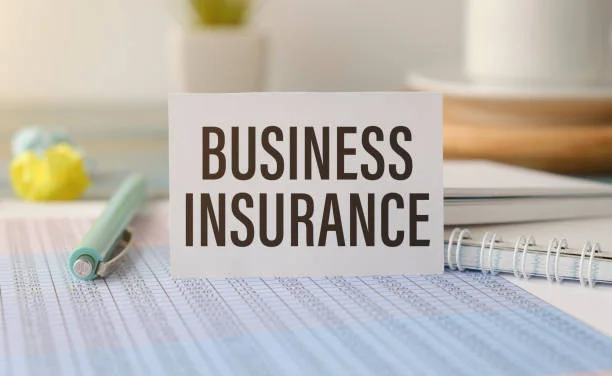Key Takeaways:
- Insurance is a foundational part of responsible business planning, not an optional add-on.
- The right coverage protects entrepreneurs from costly risks, including lawsuits, accidents, cyberattacks, and property damage.
- Understanding core insurance types early helps business owners build resilience and long-term stability.
- Proper insurance safeguards business assets, employees, clients, and future growth.
- Proactive risk management through insurance allows entrepreneurs to focus on innovation and sustainable expansion.
Introduction
Launching a new venture is an exciting and transformative challenge—one that requires planning, grit, and the resolve to navigate a seemingly endless array of risks and uncertainties. An entrepreneur’s vision can quickly become endangered by liability claims, property losses, or even simple accidents, which can undo years of hard work in an instant. The reality is that even with thorough preparation, some threats are impossible to predict or avoid. As a result, acquiring robust insurance coverage isn’t just another item on the to-do list—it’s a foundational strategy for minimizing risk and protecting your ongoing investment. For anyone exploring small business insurance, understanding the core types of coverage available is the absolute first step toward responsible business management.
Business insurance goes far beyond regulatory requirements or standard operating procedure. It’s central to ensuring that your business remains resilient in the face of both expected and unexpected challenges. Whether it’s shielding your assets from lawsuits, offering peace of mind to staff and clients, or helping your company recover from disasters, the right policies transform uncertainty into calculated risk—making it possible to survive setbacks and focus on long-term growth. In the following guide, we break down the fundamental types of business insurance every entrepreneur should consider, empowering you to shield your enterprise from some of the most prevalent and costly risks threatening modern businesses today.
General Liability Insurance
General liability insurance acts as the cornerstone of business protection and is typically the first policy most entrepreneurs acquire. Serving as a financial safety net, this coverage shields your company from a range of third-party claims involving bodily injury, property damage, or advertising mistakes, such as slander, libel, or copyright infringement. For example, imagine a customer visits your premises, slips on a wet floor, and is injured. General liability insurance steps in to cover their medical expenses, legal fees if they sue, and any resulting settlements, sparing your business significant financial strain.
Similarly, if you inadvertently use a trademarked image in your marketing materials, a resulting lawsuit could prove costly. General liability coverage helps manage these situations, ensuring your business isn’t derailed by a single mishap. Many clients, landlords, and business partners require proof of general liability coverage before they agree to sign contracts or enter into business relationships, underscoring its importance for entrepreneurs across every industry. Not having it in place can even bar your business from lucrative opportunities.
Professional Liability Insurance
Professional liability insurance—also known as errors and omissions (E&O) insurance—fills a critical gap left by general liability policies. It covers your business against claims arising from professional services or advice that result in another party’s financial loss. For instance, if you are a consultant offering strategic guidance, and a client alleges that following your advice led to significant losses, you could face expensive legal claims for negligence or mistakes—even if you believe the claim is unfounded.
This type of insurance is crucial for fields in which trust, accuracy, and specialized expertise are vital—such as legal services, accounting, architecture, financial consultancy, and IT. Even the most diligent professionals can make inadvertent errors or be subject to misunderstandings, both of which can escalate into costly legal disputes. E&O insurance provides resources to defend your reputation, pay settlements, and absorb other unforeseen expenses, making it essential for any entrepreneur whose business is built on providing professional knowledge or customized solutions.
Business Owner’s Policy (BOP)
A Business Owner’s Policy, commonly referred to as a BOP, ingeniously bundles several essential coverages—most notably, general liability and commercial property insurance—into a single, streamlined package. The appeal of a BOP lies not only in its comprehensive protective spread but also in its potential to offer better rates compared to purchasing individual policies separately. Tailored especially to small and mid-sized enterprises, a BOP is designed to cover major incident categories: everything from property damage caused by fire, vandalism, or natural disasters, to lawsuits resulting from accidental injuries occurring at your business location.
The convenience and cost-effectiveness of having major protections under one umbrella make a BOP a natural first option for growing companies looking to simplify their insurance planning while still protecting core assets. As your business expands, you can often add coverage options that reflect your unique risks—ranging from data loss to equipment breakdown.
Workers’ Compensation Insurance
Hiring your first employee is an exciting milestone. Still, it also means assuming significant new responsibilities—especially when it comes to workplace safety. Workers’ compensation insurance is a type of policy that most states require as soon as you employ even one person, whether they are full-time or part-time. It provides medical benefits, wage replacement, and rehabilitation costs for staff members who are injured or fall ill because of work-related activities.
By safeguarding both your workforce and your business finances, workers’ compensation insurance prevents out-of-pocket payments for injuries and shields you from costly litigation related to workplace accidents. The policy also demonstrates to employees that you care about their well-being and are prepared to support them in the event of an incident. Given that state regulations and requirements vary widely, it’s crucial to research your obligations before building your team.
Cyber Liability Insurance
As the digital landscape becomes more integral to how businesses operate and interact with customers, new threats emerge that weren’t a concern just a decade ago. Cyberattacks, including hacking, phishing, ransomware, and data breaches, are now constant perils—especially for companies that handle sensitive information or conduct operations online.
Cyber liability insurance is designed to support your recovery in the wake of an attack. Such a policy can cover the cost of restoring lost data, legal fees, regulatory fines, customer notification expenses, and even public relations efforts to protect your reputation. Without cyber coverage, a single website hack or data leak can mean not just thousands in losses, but permanent damage to client relationships and your business’s hard-won reputation. As cybercrime continues to escalate, having this specialized insurance is increasingly critical—not only for major corporations but also for small businesses, which are often targeted due to perceived security weaknesses.
Commercial Auto Insurance
Vehicles form the backbone of countless businesses—whether they’re being used for deliveries, transporting goods, taking employees to job sites, or even meeting with clients. If your business owns, leases, or rents vehicles for these operational needs, commercial auto insurance is an absolute necessity. This coverage protects your company from incurring the full cost of property damage, theft, and third-party liability resulting from auto accidents that occur during business use.
Unlike personal auto policies, which typically exclude coverage for vehicles used in business activities, commercial auto insurance fills critical gaps in coverage. Coverage applies to both company-owned and employee-driven vehicles, including leased, rented, or even personal vehicles used for work purposes. This flexibility offers protection whether you operate a fleet or rely on a single car to serve clients and customers, ensuring that a road mishap doesn’t derail your operations or put your company’s finances at risk.
Business Interruption Insurance
No business owner likes to imagine catastrophe striking—but fires, floods, natural disasters, and large-scale equipment failures all possess the potential to force your company into a temporary shutdown. Business interruption insurance, also known as business income insurance, is tailored to help you weather these unexpected closures. It covers key operating expenses such as rent, employee salaries, and lost profits until you can reopen and resume normal activities.
For many small businesses, the reality is that a few weeks without income can threaten long-term survival. Business interruption coverage provides a critical safety net by offering the resources necessary to stabilize your operations during a crisis and plan for a structured recovery. It doesn’t replace all lost income, but it can make the difference between a temporary setback and permanent closure—making it an especially wise investment for entrepreneurs in disaster-prone regions or industries that rely on specialized equipment and specific locations.
Final Thoughts
Building and scaling a business will always involve some degree of risk, but the savvy entrepreneur approaches these risks with preparation and foresight. With the proper mix of business insurance in place, you protect not only your physical and financial assets but also your employees, your reputation, and your ability to innovate. From defending against lawsuits and cyberattacks to providing a crucial financial cushion after disasters, insurance empowers you to focus on what matters most—growth, client satisfaction, and long-term vision.
Take the time to evaluate your business’s unique vulnerabilities and seek out the advice of an experienced insurance professional. Doing so will help you tailor your coverage to your goals and build a resilient foundation for your entrepreneurial legacy—one that can withstand both the expected and the unimaginable for years to come.






